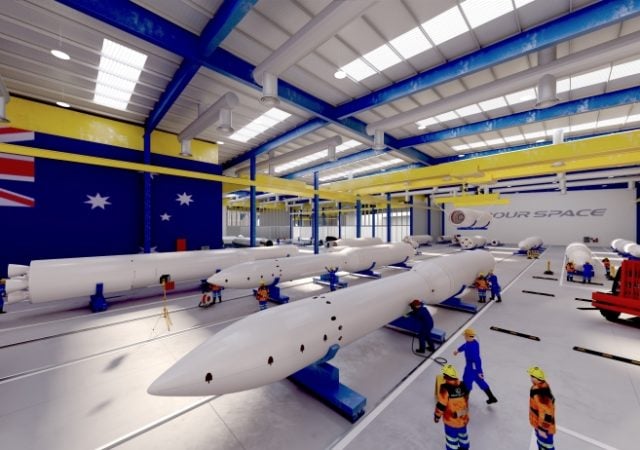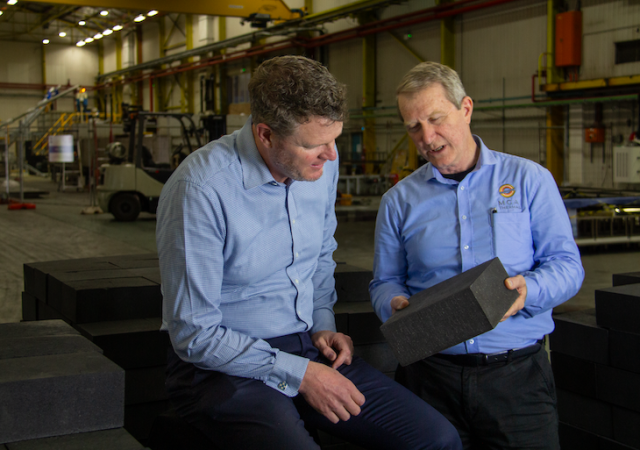Australia has ranked 10th in Cisco’s Global Digital Readiness Index, which explores the digital readiness of 118 countries globally.
Created by Cisco and Gartner using a holistic framework that includes components beyond access to technology, the Index examines Australia’s position in a global setting and will hopefully provide insights to policy makers and state and federal government to maximise the benefits of a digitally inclusive Australia.
Ken Boal, Vice President of Cisco ANZ, said digital readiness in Australia is no longer an issue.
“We no longer need to argue the benefits for digitisation,” Boal tells Kochie’s Business Builders (KBB). “We now take it on board why digital transformation at a company and country level is crucial to future success.”
Boal suggests the question should now be “how do you accelerate and amplify the advantages of digitisation?” and he says it’s time we all “lean into the conversation”.
To assist in communicating the importance of developing a strategy around Australia’s future as a digital nation, Cisco sought the assistance of Gartner to compile the index. The hope is the index will allow us to better understand how Australia is positioned globally and how we are positioned in Australia.
“It is long term stuff,” says Boal. “It’s not about the next quarter or next year. Some stuff we talk about will even be generational and there are levers to pull that will generate action over the next three years.”
The research determines Digital Readiness by examining seven factors:
– Human capital: total labour force, adult literacy rate, population and years of schooling.
– Basic human needs: life expectancy, mortality rate, sanitation, access to electricity.
– Ease of doing business: rule of law, logistics performance, infrastructure rating, time to get electricity.
– Technology infrastructure: availability of internet and networking services, IT spend forecast, and subscriptions to fixed telephone and broadband.
– Technology adoption: mobile device penetration, internet usage, cloud services spend forecast.
– Startup environment: strength of legal rights, time to start a business, venture capital availability.
– Business and government investments: foreign direct investment, high-technology, exports, government success in ICT promotion.
Whilst Australia ranked amongst the most digitally ready countries in the world, the Index revealed we are in danger of becoming a nation of have and have-nots. Although Australia scored 17.34 out of a possible 25 overall. When results were broken down, some states faired far better than others.
Australian Capital Territory residents live in the most digitally ready part of the country, with a digital readiness score of 21.14 compared to Tasmania’s score of 9.5.
Boal believes the uneven results place Australia at risk of becoming a more digitally divided society.
“Despite a strong overall score, the benefits of digitisation need to be better shared amongst all Australians. We need to build a more digitally inclusive society. As governments, businesses and citizens increase everyday activity using online platforms, we need to make sure that everyone can participate equally to ensure all segments of society and the economy experience the benefits that digitization brings regardless of where they live,” Boal says.
The report also categorised countries in terms of their stage of digital readiness. Activate, Accelerate and Amplify, with Australia ranking in the Amplify stage alongside the US and several Scandinavian nations.
While this seemingly bodes well for Australia as a nation of digital natives, Boal warns this is no time to rest on our laurels. “If we don’t invest equally, Australia will run the risk of losing its position near the top of international league tables.”
The strongest components of digital readiness identified by Cisco include human capital, basic human needs, technology infrastructure, technology adoption and ease of doing business. The start-up environment and business and government investments are also important components. However, it is a holistic approach to policy across all of the components that Boal believes will yield results in the long term.
Boal warned while Australia is well placed today within the Amplify stage, it exists within a competitive global environment.
“We can expect pressure from more nations joining this group in years to come. Australia needs all states and territories contributing equally to ensure that we retain our place at the global forefront of digital readiness.”




















Trending
Daily startup news and insights, delivered to your inbox.